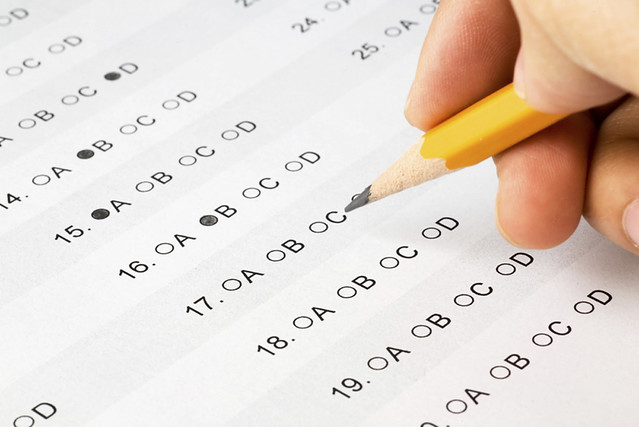
You would be hard pressed to find a bigger cheerleader for Advanced Placement than Jay Mathews. Except possibly for the people at The College Board who run the extremely profitable program.1
For anyone who has not read the Post regularly over the past couple of decades, Mathews is well-known around here for writing full-throated, uncritical columns championing the AP program. Last month alone, three of his five columns centered on that topic.
The fall Education Edition of the Post Sunday Magazine published in October also featured an eight-page spread by Mathews that was ostensibly a profile of the director of the AP program. It was a sloppy wet kiss that a casual reader might have mistaken as nothing more than an “advertorial” paid for by the College Board, mixed in with the other ads for private schools, tutoring services, and military boarding academies.
And, of course, Mathews also is responsible for the farce known as the Challenge Index, an annual ranking that is embraced by schools and news media as a benchmark of high school quality. A measure that is based solely on the number of AP tests taken.2
In all of this promotional work (including at least three related books), Mathews rarely does much to address critics of the AP program. Mostly it consists of setting up very flimsy straw men and quickly knocking them down with a very dismissive attitude. Anyone who doesn’t agree that AP should be the foundation of a high school academic program is misguided at best.
Toward the end of the Sunday Magazine article, he mentions in one paragraph two rather prominent critics of the AP program, and then allows the subject of his piece to dismiss them with a couple of quotes containing no real rebuttal.
One of those critics is the 2009 documentary “Race to Nowhere”. In the film, produces look at how students are under increasing pressure to “succeed” in school, including by being pushed into taking more AP classes.
The other is a 2012 article from The Atlantic with the provocative title “AP Classes Are a Scam”.
Although I wouldn’t go so far to call the program a scam, the author, a former government professor at Boston College, makes some excellent points that deserve to be part of the debate. His last bullet point is one of my favorites.
To me, the most serious count against Advanced Placement courses is that the AP curriculum leads to rigid stultification — a kind of mindless genuflection to a prescribed plan of study that squelches creativity and free inquiry. The courses cover too much material and do so too quickly and superficially. In short, AP courses are a forced march through a preordained subject, leaving no time for a high-school teacher to take her or his students down some path of mutual interest. The AP classroom is where intellectual curiosity goes to die.
Which relates directly to some of my primary criticisms of the AP program, and especially the huge emphasis the classes receive in most high schools in this area.
For one, the whole AP program drives an assumption that the goal of every student should be attending a four-year college. Indeed, the entire curriculum is dictated by university officials who benefit from the stream of new customers. Too often, kids are given the impression that anything other than a brand name college represents failure.
Looking at the bigger picture, the AP structure reinforces the idea that a pure academic approach is the only way to understand any subject. That subjects can only be studied within their silo, a segmented approach to learning that was already an entrenched attitude in most of the high schools I’ve worked with over the years and now extending down into the lower grades.
That intellectual curiosity the professor spoke of is difficult, if not impossible, in a rigidly designed curriculum that leaves little room for exploration outside of the silo.
Anyway, after all that ranting, I wouldn’t advocate for high schools to drop AP classes entirely (as some schools are doing). I’ve both taken and taught AP courses, as well as spending a few summers scoring them and there is some value in the concept (if not the current execution).
Schools should be providing students with the option to participate. With the emphasis on option.
We need to help students understand and explore ALL their options during their time in K12 classrooms. Structuring high school entirely around a college-level program, which Jay Mathews appears to be pushing with his AP love affair, slams the door shut to those choices.
Image: Exam by Alberto G. Posted to Flickr and used under a Creative Commons license.
1. They also own the equally profitable, and questionable, SAT and other related testing programs. You can find more data on the finances of the College Board and other “non-profit” testing groups at Americans for Educational Testing Reform.
2. If you want to torture yourself with it, I’ve written far too much about that crap in this space.


 In
In